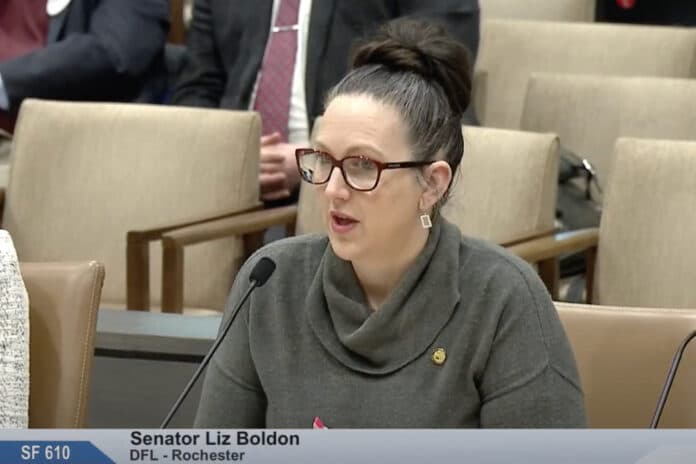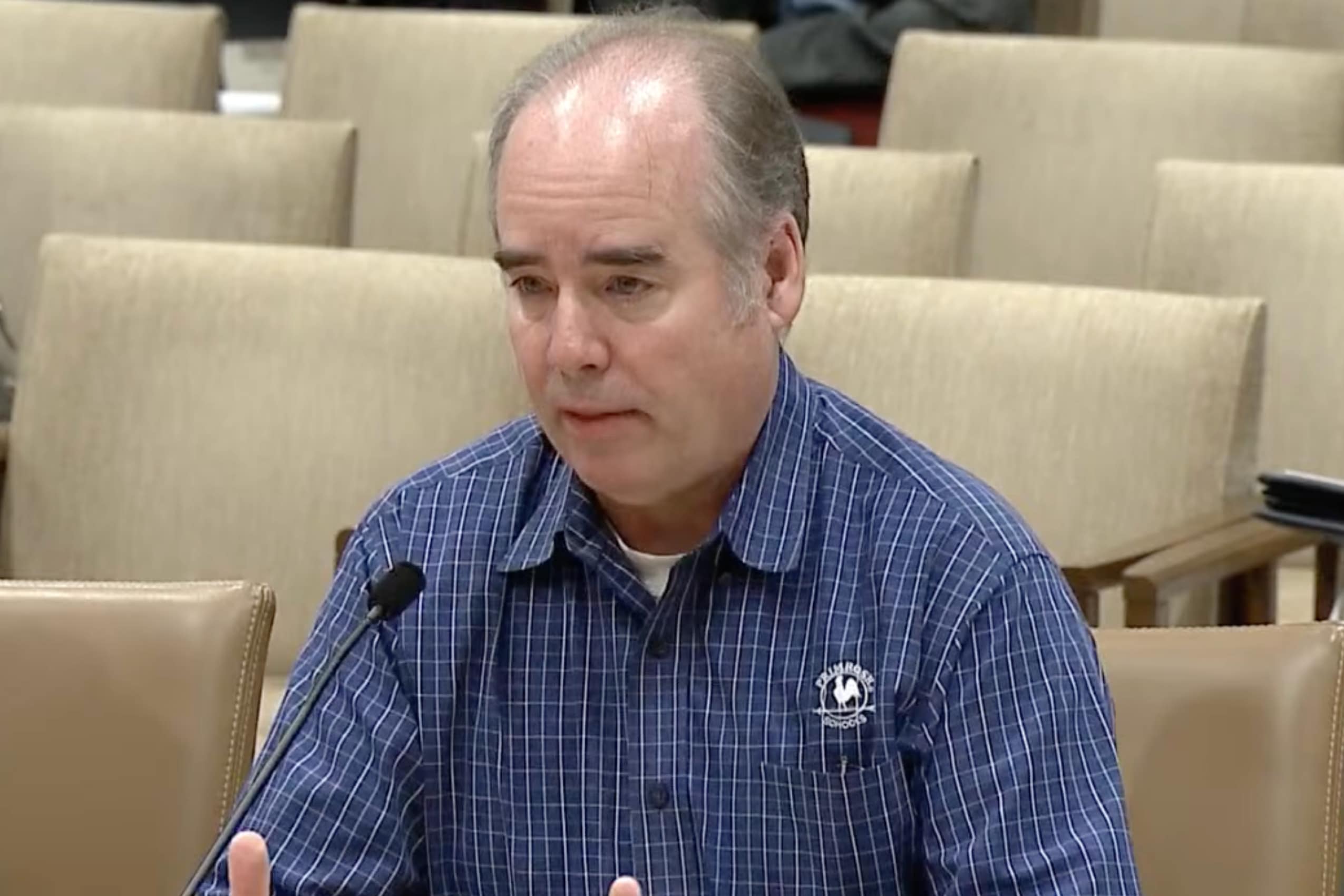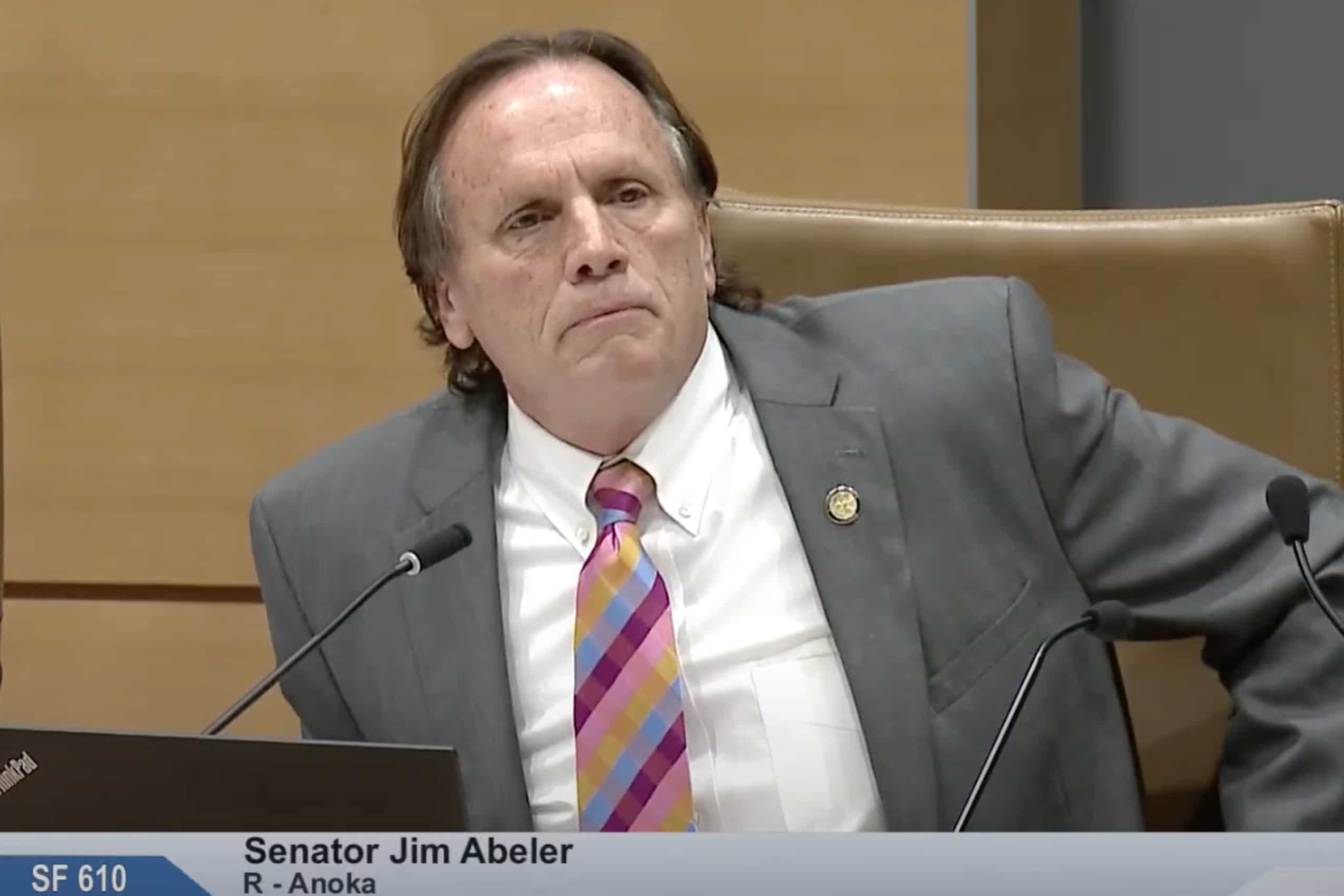
Joe Piket owns two early childhood learning centers in the northwest Twin Cities suburbs. He has firsthand experience in how to navigate through illness and infection among his staff and customer base that impacts his operations and, sometimes, his bottom line.
“I am entrusted with the care and protection of young children,” Piket told a panel of Minnesota state senators Thursday as he testified in support of a bill that would empower private daycare providers to develop enforceable policies allowing them to deny or sever enrollment of children not up to date on vaccinations required by state statute, when those children do not have a doctor-certified medical exemption.
“I have to look parents in the eye and tell them I am going to keep their kids safe,” said Piket, who owns Primrose Schools franchises in Maple Grove and Brooklyn Park. “For me personally that means I minimize risk of any illnesses spreading throughout my center.”
SF610, sponsored by Sen. Liz Boldon, DFL-Rochester, would effectively eliminate “conscientiously held beliefs” as a protected immunization exemption that private daycare providers like Piket are required to honor under current state law.
Minnesota statutes covering immunization exemptions currently treat private childcare centers similar to public schools, where conscientiously held beliefs are statutorily protected.
Boldon told her colleagues during a Senate Health and Human Services Committee hearing Thursday that her proposal is just as much about business freedom as it is about optimizing the health and safety of children who are too young to be immunized for diseases like measles (which starts at 12 months, according to the Minnesota Department of Health).
The bill “seeks to allow a specific group of independent businesses — licensed childcare providers — the choice to make policy around immunizations only involving the last exemption, personal beliefs,” Boldon said.
Supporters, opponents make their case
Organizations that testified in support of the bill include the Minnesota Childcare Association, the Minnesota Chapter of the American Academy of Pediatrics, Freedom Foundation of Minnesota and Minnesota Academy of Family Physicians, who cited what they called an “alarming decline” in vaccination rates across the state as a reason for supporting the bill.

But not all daycare providers or health professionals who testified endorsed the legislation.
Breanna Bergman, a longtime early childcare substitute instructor, said she has “been at the frontline of disease and illness” in her career. She is concerned there are countless families around the state who will be squeezed out of childcare options if the bill passes and some of the larger corporate childcare providers operating in Minnesota are able to develop a policy that would allow them to turn away families who cite conscientiously held beliefs as a reason for not vaccinating their children on time or at all.
“When there are 17 different [required vaccinations], if a child has a reaction to only one, medical exemptions will only be for that vaccine they had a reaction to,” Bergman told senators.
Colleen Grant, a registered nurse and mother, submitted written testimony in opposition to the bill, saying she believes vaccination-induced immunity is an extremely useful public health tool but is concerned the “language in SF610 is resorting to using coercion to compel parents in our state to vaccinate their children by taking away their option to have their conscientious exemption recognized by their childcare provider.
“I am not anti-vax, but I am anti-coercion,” Grant said.
Her sentiments were shared by Sen. Jim Abeler, R-Anoka, who criticized the bill for what he believes is its condescending treatment of those who have practical reasons for utilizing conscientiously held belief exemptions for their children.
“I am not anti-vax; I am pro-informed consent,” Abeler said, “and I am pro-collaboration with your doctors. And I am pro-informed doctors and pro-informed patients. This bill would deprive them of that.”

Health and Human Services Committee Chair Sen. Melissa Wiklund, DFL-Bloomington, laid the bill over for the time being, saying she would likely bring the bill back for more discussion among committee members.
Members did vote on an amendment brought forward by Sen. Bill Lieske, R-Lonsdale, that he said would have retained the ability to give parents and their children “full bodily autonomy.” All five DFL senators present voted against that amendment, including Alice Mann of Edina, Kelly Morrison of Deephaven, Rob Kupec of Moorhead and Chair Wiklund.
The companion bill in the House is sponsored by Rep. Mike Freiberg, DFL-Golden Valley, who has also authored legislation a number of times over the last decade that would make it more difficult for families to obtain immunization exemptions for their children enrolled in public schools.
Hank Long
Hank Long is a journalism and communications professional whose writing career includes coverage of the Minnesota legislature, city and county governments and the commercial real estate industry. Hank received his undergraduate degree at the University of Minnesota, where he studied journalism, and his law degree at the University of St. Thomas. The Minnesota native lives in the Twin Cities with his wife and four children. His dream is to be around when the Vikings win the Super Bowl.
















